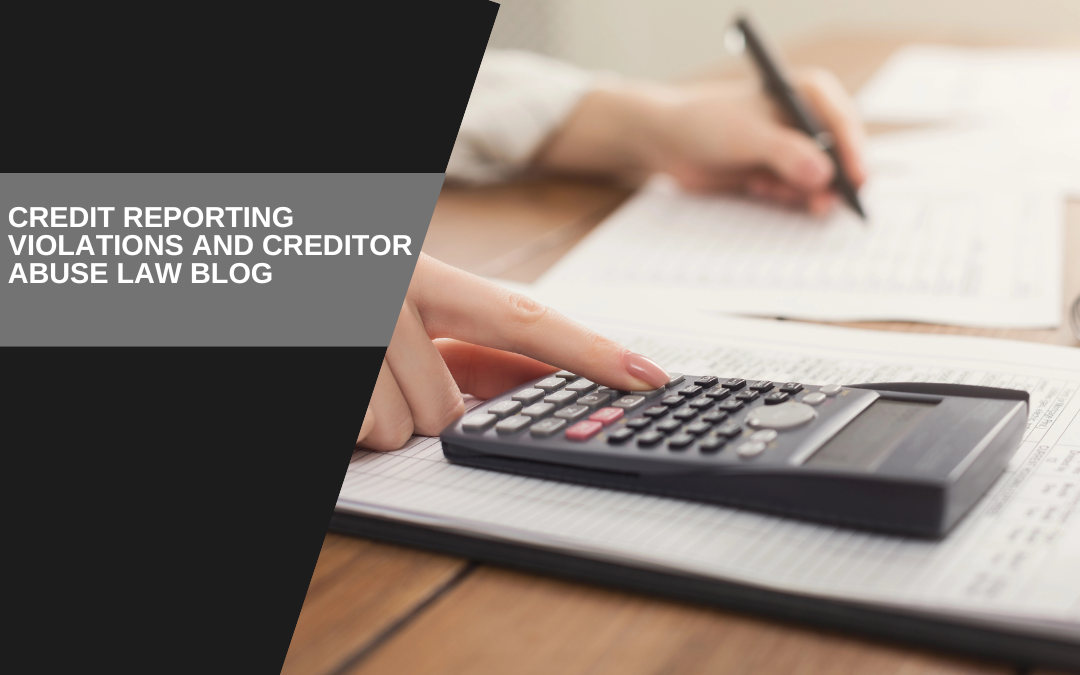
Frequently Asked Questions (FAQs) About Credit Reporting Violations and Creditor Abuse
What are Credit Reporting Violations?
Credit reporting violations occur when credit bureaus (Experian, Equifax, TransUnion) include inaccurate or misleading information on your credit report. This can happen due to clerical errors, identity theft, or even intentional misconduct by creditors. Common violations include:
- Inaccurate account information: Incorrect balances, payment history, or account status.
- Outdated information: Negative information remaining past the legal reporting window (typically 7 years for delinquencies, bankruptcies fall off after 7-10 years).
- Duplicate accounts: The same account appears multiple times.
- Identity theft: Accounts belonging to someone else appear on your report.
These errors can significantly damage your credit score, making it harder to qualify for loans or favorable interest rates.
What is Creditor Abuse?
Creditor abuse occurs when a creditor engages in unfair or deceptive practices related to your credit accounts. This can include:
- False reporting of late payments: Reporting a payment as late even if received on time.
- Excessive fees: Charging unwarranted or exorbitant fees on your accounts.
- Harassment: Repeatedly contacting you outside of allowed hours or using abusive language.
- Coercion: Threatening legal action or negative credit reporting to force a payment not genuinely owed.
These actions can not only harm your credit score but also cause emotional distress and financial hardship.
How Do I Know If There Are Errors on My Credit Report?
You are entitled to a free credit report from each bureau annually. You can request your reports at Annual Credit Report. Carefully review each report for inaccuracies. Look for inconsistencies in account information, outdated negative items, or duplicate accounts.
Do I Dispute Errors on My Credit Report?
If you find errors, you can dispute them directly with the credit bureau and the creditor who reported the information. The Fair Credit Reporting Act (FCRA) requires bureaus to investigate disputes within 30 days. File disputes online, by mail, or by phone. Keep copies of all communication and any documentation supporting your claim.
What Happens After I Dispute an Error?
The credit bureau will contact the creditor for verification. If the creditor cannot validate the information, the bureau must remove it within 30 days of receiving the dispute. If the investigation is inconclusive, you can submit additional documentation or request a reinvestigation.
What If My Dispute is Denied?
If your dispute is denied, you have the right to file a statement of disagreement with the credit bureau. This statement will be included in your report alongside the disputed information. Consider contacting a credit attorney or credit counselor for further assistance.
How Can I Protect Myself from Credit Reporting Violations?
- Monitor your credit report regularly.
- Respond promptly to any notices of collection activity.
- Keep detailed records of your payments and account communications.
- Shred any pre-approved credit card offers you don’t want.
- Be cautious about sharing your personal information.
What are My Rights Under the Fair Credit Reporting Act (FCRA)?
The FCRA empowers consumers to access their credit reports, dispute errors, and hold creditors and bureaus accountable for inaccurate information. You can find more information about your rights on the Federal Trade Commission website.
How Can I Report Creditor Abuse?
If you suspect creditor abuse, you can file a complaint with the Consumer Financial Protection Bureau (CFPB). You can also consider reporting the issue to your state Attorney General’s Office.
Should I Hire an Attorney for Credit Reporting Issues?
An attorney specializing in consumer law can offer valuable guidance for complex credit reporting issues or creditor disputes. Consider seeking legal counsel if your attempts to resolve the issue directly are unsuccessful or if you believe you have suffered significant financial harm.
These articles are for general informational purposes only and are not legal advice. Contact us today to discuss your specific situation.
